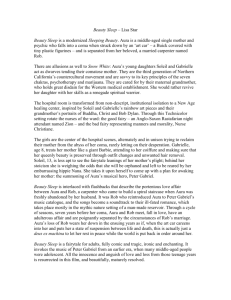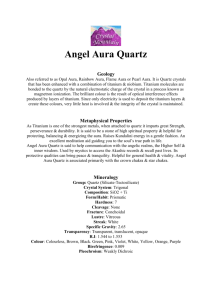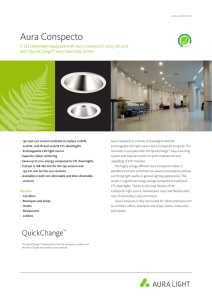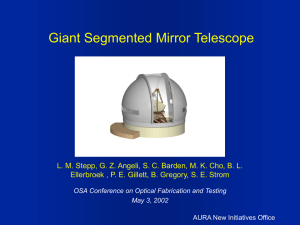wrote about editing Aura
advertisement
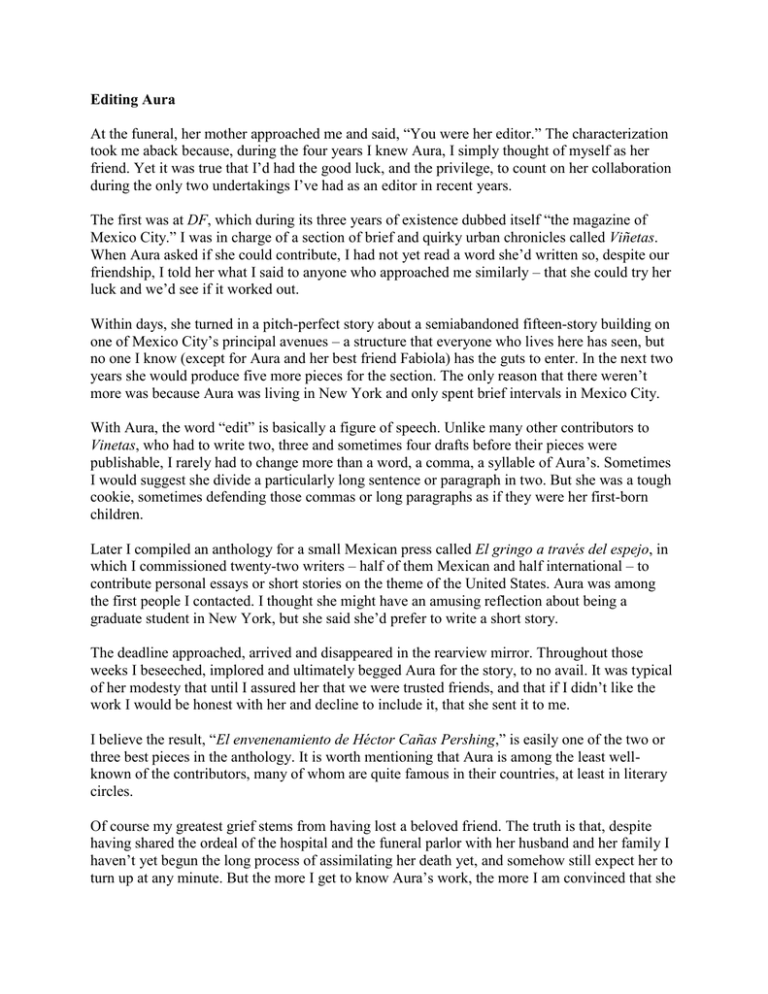
Editing Aura At the funeral, her mother approached me and said, “You were her editor.” The characterization took me aback because, during the four years I knew Aura, I simply thought of myself as her friend. Yet it was true that I’d had the good luck, and the privilege, to count on her collaboration during the only two undertakings I’ve had as an editor in recent years. The first was at DF, which during its three years of existence dubbed itself “the magazine of Mexico City.” I was in charge of a section of brief and quirky urban chronicles called Viñetas. When Aura asked if she could contribute, I had not yet read a word she’d written so, despite our friendship, I told her what I said to anyone who approached me similarly – that she could try her luck and we’d see if it worked out. Within days, she turned in a pitch-perfect story about a semiabandoned fifteen-story building on one of Mexico City’s principal avenues – a structure that everyone who lives here has seen, but no one I know (except for Aura and her best friend Fabiola) has the guts to enter. In the next two years she would produce five more pieces for the section. The only reason that there weren’t more was because Aura was living in New York and only spent brief intervals in Mexico City. With Aura, the word “edit” is basically a figure of speech. Unlike many other contributors to Vinetas, who had to write two, three and sometimes four drafts before their pieces were publishable, I rarely had to change more than a word, a comma, a syllable of Aura’s. Sometimes I would suggest she divide a particularly long sentence or paragraph in two. But she was a tough cookie, sometimes defending those commas or long paragraphs as if they were her first-born children. Later I compiled an anthology for a small Mexican press called El gringo a través del espejo, in which I commissioned twenty-two writers – half of them Mexican and half international – to contribute personal essays or short stories on the theme of the United States. Aura was among the first people I contacted. I thought she might have an amusing reflection about being a graduate student in New York, but she said she’d prefer to write a short story. The deadline approached, arrived and disappeared in the rearview mirror. Throughout those weeks I beseeched, implored and ultimately begged Aura for the story, to no avail. It was typical of her modesty that until I assured her that we were trusted friends, and that if I didn’t like the work I would be honest with her and decline to include it, that she sent it to me. I believe the result, “El envenenamiento de Héctor Cañas Pershing,” is easily one of the two or three best pieces in the anthology. It is worth mentioning that Aura is among the least wellknown of the contributors, many of whom are quite famous in their countries, at least in literary circles. Of course my greatest grief stems from having lost a beloved friend. The truth is that, despite having shared the ordeal of the hospital and the funeral parlor with her husband and her family I haven’t yet begun the long process of assimilating her death yet, and somehow still expect her to turn up at any minute. But the more I get to know Aura’s work, the more I am convinced that she was her generation’s brightest promise to Mexican literature. Here are three of her chronicles, two translated by Michael Parker-Stainback and one by me. David Lida


